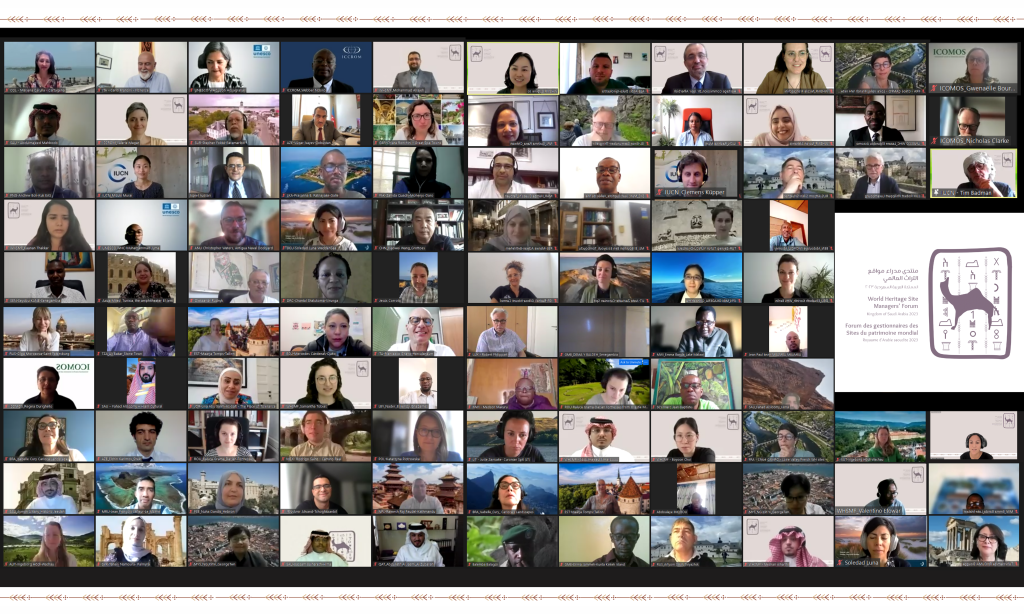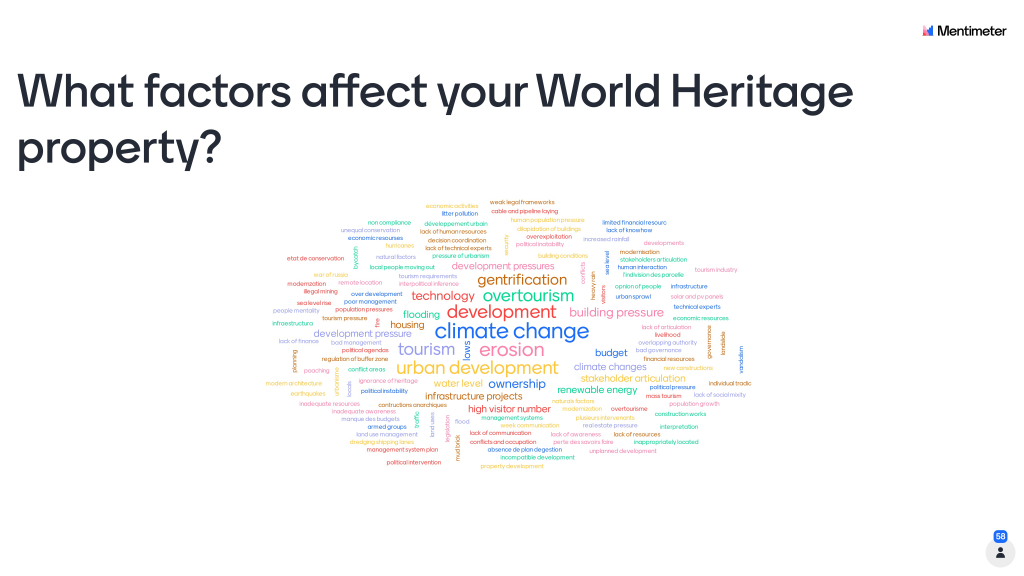In mid-June 2023, the ICCROM-IUCN World Heritage Leadership (WHL) programme, the UNESCO World Heritage Centre and the Ministry of Culture of the Kingdom of Saudi Arabia, represented by its Heritage Commission in cooperation with ICOMOS launched the 5th edition of the World Heritage Site Managers’ Forum. The online component of the Forum, delivered between June and July, brought together more than 105 site managers involved with World Heritage properties in 63 countries. In September, the Forum will meet in Riyadh, Saudi Arabia, in conjunction with the extended 45th session of the World Heritage Committee.

The World Heritage Site Managers’ Forum (WHSMF) is a flagship networking and capacity-building activity of the World Heritage Convention. Since 2017, it has brought together hundreds of site managers and heritage practitioners working on the frontlines to ensure the conservation of World Heritage places around the world.
Following last year's celebration of the World Heritage Convention's 50th anniversary, the Forum takes stock of the last five decades of implementation and reflects on what is needed to manage and conserve World Heritage in the next 50 years.
The online component of the Forum consisted of three sessions that served as an introduction and refresher on the World Heritage system and some of the management requirements. The first session focused on the basics of the World Heritage Convention, introducing its framework, Advisory Bodies to the World Heritage Committee, the World Heritage Centre as Secretariat of the Convention and some of the key processes of the system - from monitoring mechanisms, like Periodic Reporting and Reactive Monitoring, to different types of missions. The second session looked at World Heritage sites as heritage places, considering the difference between a management system and a plan and diving deeper into the need for a thorough understanding of Outstanding Universal Value and the heritage values connected to our sites and the need to identify attributes to manage and conserve. The session concluded with an overview of the factors affecting World Heritage properties globally.

The final session highlighted the role of people in heritage management, recognizing their contributions to heritage and how heritage can provide a diverse range of benefits in return. The session looked deeper into governance arrangements, underscoring the need for wider collaboration and reconciliation of World Heritage requirements with national and local processes and procedures.
Forum participants were asked to share three achievements and three key challenges of their World Heritage sites. Participants showcased different achievements, from improved governance arrangements to increased awareness of World Heritage through capacity building, education and interpretation, as well as an increased understanding of how heritage contributes to communities and local economies. On the other hand, participants shared their struggles with the lack of or inadequateness of management systems and/or plans; lack of human, technical and financial resources; changes in the use of the heritage place; lack of political and stakeholder support; development pressure from service, as well as tourism infrastructure and management; and climate change induced hazards and factors. The discussion revealed that these issues are often relative to the World Heritage place's social, economic, and environmental context. The participants stressed the importance of working closely with institutions and actors from within and beyond the heritage sector to address these challenges.
This edition of the WHSMF is the first to resume in-person activities since 2019. From 11 to 15 September 2023, site managers will convene in Riyad, Saudi Arabia, to continue the discussions initiated online, network with peers from around the world, and deepen their understanding of World Heritage processes and new and forthcoming resources. Between now and September, participants will prepare an official Forum Statement outlining the challenges, needs and opportunities they collaboratively identified. Their Statement will be presented to the World Heritage Committee before the discussion of the State of Conservation of World Heritage sites.
